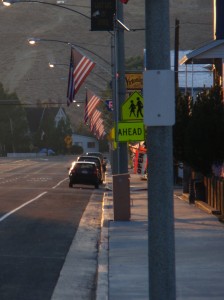19 Aug How To Close a First Amendment Public Forum: Does a Local Government’s Intent Matter?

Fourth Circuit: a local government can “close” a public forum with a neutral policy, regardless of its intent.
Your City has flag standards on light poles. They line the City streets.
For over 15 years, you have allowed private parties to use this property to place their own flags.
Now you have a problem.
A group wants to use this City property to fly the Confederate flag during a City parade. The public is fiercely opposed.
After your City council first approved the request, it changed course. Its new policy restricts flag-standard use to three flags: the American, State, and City flags.
The group sued. It claimed that the City’s change violates its First Amendment rights.
Can you successfully defend the City’s policy?
In a similar case, the Fourth Circuit recently said yes.
In Sons of Confederate Veterans v. City of Lexington, No. 12-1832, the court ruled that the City of Lexington had properly closed its designated public forum. The court found it important that the City did not exclude a specific speaker or a specific class of speech, but disallowed “all private expression.”
The court rejected the view that “the motive behind the Ordinance dictates its constitutionality.” The City “was entitled to listen to the public and to enact ordinances that are constitutional in text and in operation, and that are supported by the electorate.”
You can read more about the case here, here, and here.
Image courtesy of Flickr by tomhilton



